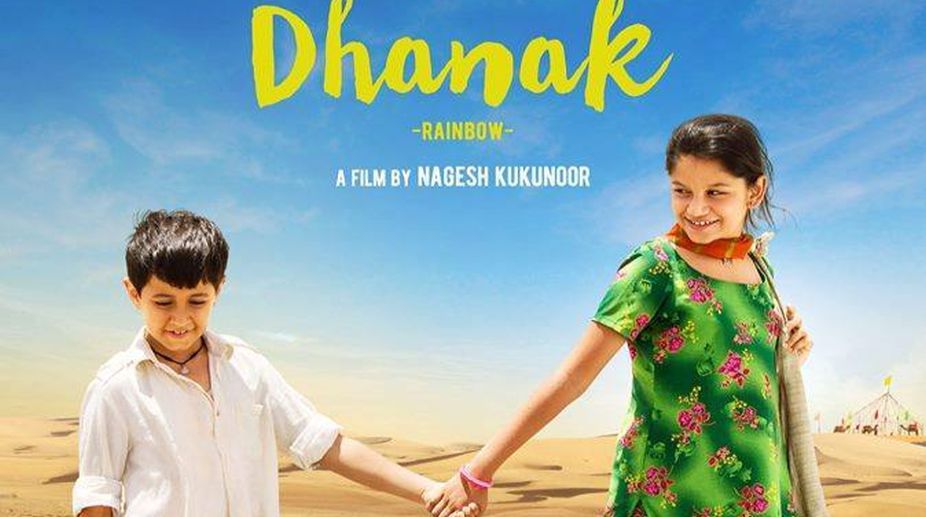Kolkata hosts 7th South Asian Short Film Festival
The 7th South Asian Short Film Festival is being held at Nandan-III, Kolkata, showing 116 short fiction and documentary films from 18 countries in five sections.

(Photo: Facebook)
It was a heart-warming sight at Nandan when hundreds of children assembled to witness a film they could hardly have known anything about. It didn’t have banners like Disney or Spielberg to promise lavishly mounted visuals or dramatic thrills executed with superb craftsmanship that would keep them glued to their seats.
Here was an Indian film made without the support of an organisation like the Children’s Film Society that invariably becomes the only source for films designed for an age group normally addicted to cartoon channels. It was a film called Dhanak, which had been made last year as an independent effort by Nagesh Kukunoor who has distinguished himself outside the mainstream in Bollywood.
Advertisement
He had come with a strong presence in his first film Hyderabad Blues almost 20 years ago after his return from the United States where he had acquired his early skills. Few could have expected him to get so passionately engaged in a film designed for children but which could be thoroughly enjoyed at all levels.
Advertisement
This was just the lesson that had been learnt almost 50 years in Goopy Gyne Bagha Bayen where Satyajit Ray had demonstrated quite unambiguously that a young audience does not deserve any compromise with aesthetic standards. If anything, Dhanak was as much a cinematic delight as his earlier works that revealed a filmmaker with extraordinary talents. It is a pity that films presented by the CFSI get a limited opportunity to reach the public screen. More unfortunately, there is a naive look about these films that is a sad comment on the makers.
Predictably, very few of these films have been taken seriously despite the encouragement that comes from the national awards in this category. Budget constraints and other restrictions may have also come in the way. But where the intentions are honest, these hurdles don’t matter. Many years ago, Tapan Sinha had made Sabuj Dwiper Raja partly supported by the CFS because the filmmaker was determined to explore all the resources at his disposal to make the thriller presentable in theatres. The results were quite positive.
The same approach applies to Nagesh Kukunoor. As an independent filmmaker, he has not shied away from the professionalism that reinforces the natural intelligence of his work. InDhanak, all this comes with abiding warmth and an infectious sense of joy and human experience that made it an ideal choice for the inauguration of the International Children’s Film Festival presented by Cine Central in collaboration with Unicef and Nandan.
The predominantly young audience came from diverse backgrounds in the districts and fulfilled, however modestly, the objective of taking such soul-stirring work to young audiences that don’t normally get an opportunity to visit airconditioned theatres. The good news was that the films were being taken to other cities in the region with a clear agenda —telling stories of life with a human touch that would leave lasting impressions.
The children seemed to enjoy every minute of the road movie revolving around the charming adventures of a brother and sister who are less than 10 years old. In Kolkata, the film could have produced other exciting echoes. The girl Pari and boy Chhotu may have been seen as recreations of the Apu and Durga adventures on a bigger scale.
Kukunoor places the children in a vast landscape in Rajasthan to embrace both the drama and the visual delights. Here a visually impaired boy is desperately keen to meet his hero Shah Rukh Khan and, driven by his suffering at the hands of a cruel aunt, runs away with his sister who makes every effort to protect him. What sustains the film is the superb script that presents interesting people whom the children meet on the road as the sister tries to fulfil a pledge to give his brother his eyesight back.
The story has a simple human appeal but the treatment and the delightful performances that the director draws from the two child actors take the film to another level of uninterrupted entertainment.
Dhanak cannot be compared with Kukunoor’s earlier films like Iqbal, Dor and Hyderabad Blues that had dealt more specifically with serious issues. But where the films emerge from the same source is the sense of cinematic fulfilment. Kolkata could not have expected a better choice where the polished treatment is added to the charming innocence to become the film’s most delightful asset.
The festival also had entries from Denmark, France, Germany, Iran, Japan, Korea, Mexico and the Netherlands. The only other Indian entry was Dakghar. It confirmed the crying need for more films in this category that would do justice to the cinematic skills of the filmmakers themselves and dispel the notion that children’s films have a limited market.
After two decades of filmmaking during which he used part of his own earnings from an engineering career in the United resources to make his first film and then proceeded to build on that success with more off-beat ideas, Kukunoor may finally have discovered — after the string of awards that Dhanak has picked up — that the overwhelming response to a simple story told from the heart is perhaps the best means of creative satisfaction.
Advertisement